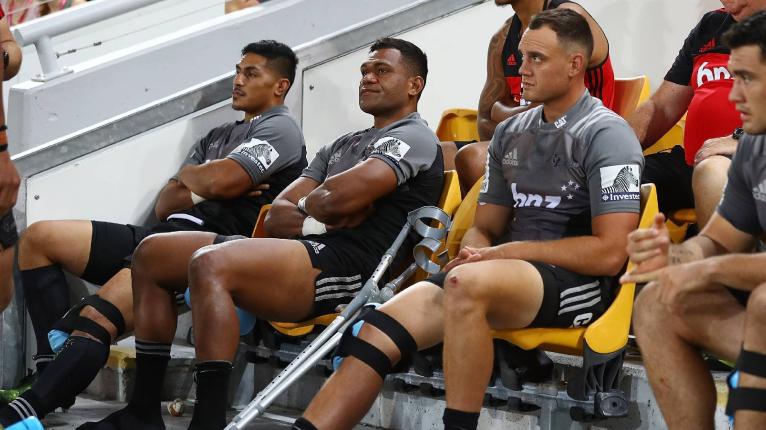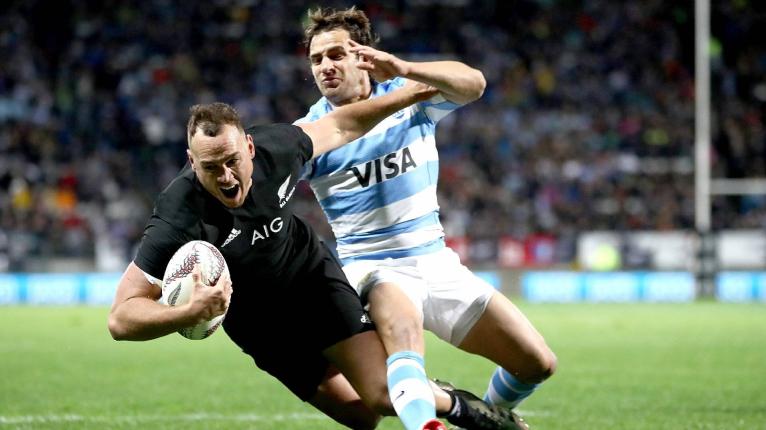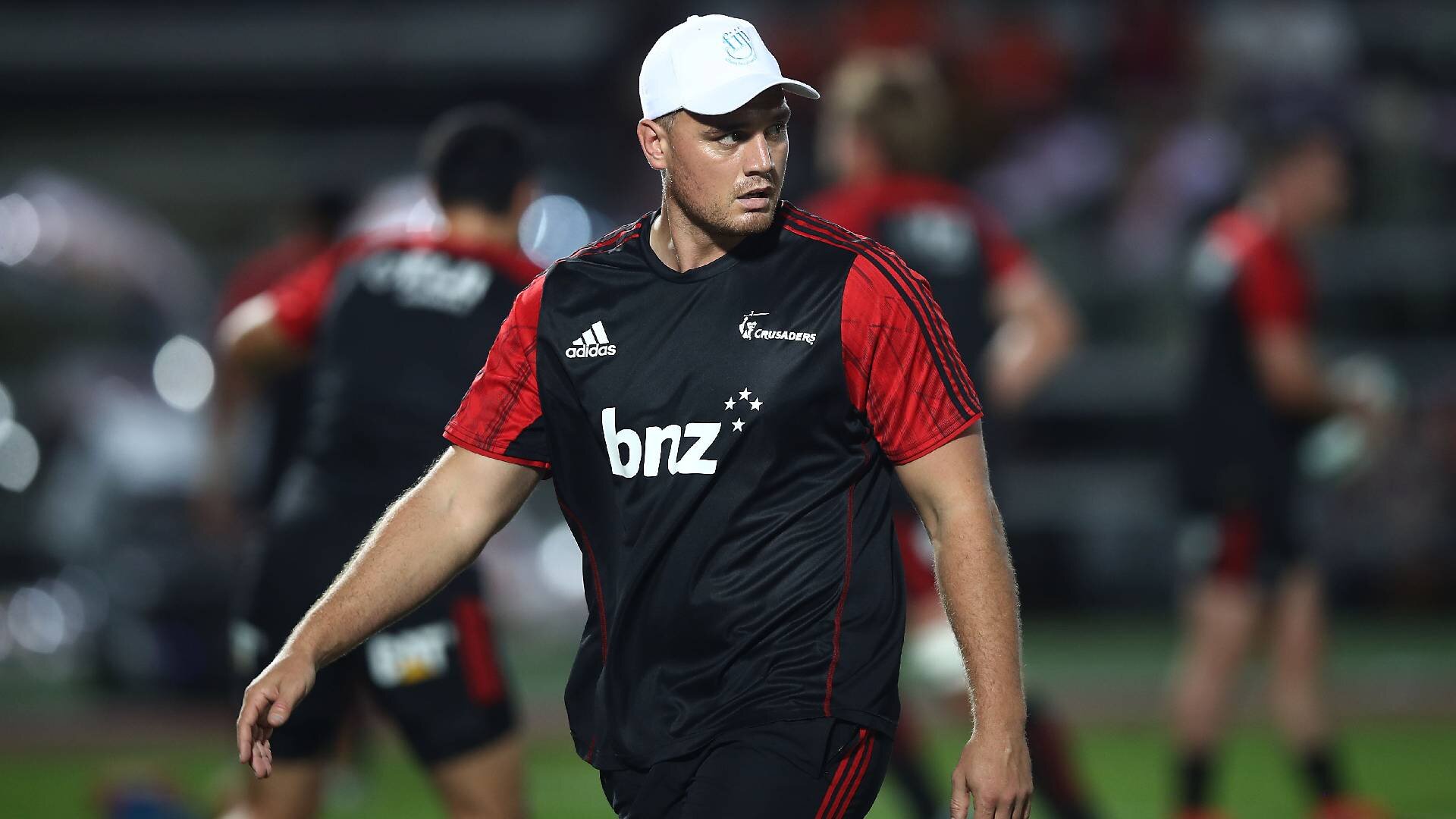Israel Dagg's heartfelt message for fellow professional rugby players

Former All Blacks fullback Israel Dagg has penned an open letter on social media urging players to make the most of their off-field personal development earlier in their careers in the wake of his premature retirement due to a serious knee injury.
Thee 66-test veteran retired in April due to a persisting knee injury that hampered him for more than two years.
Dagg, who made his professional debut for Hawke’s Bay as an 18-year-old in 2006, played 25 times for the Highlanders between 2009 and 2010 and won two Super Rugby crowns with the Crusaders in 2017 and 2018, opened up about the effects of not only his ongoing injury, but also the mental health struggled with following his omission from the All Blacks ahead of their successful World Cup campaign in 2015, which he described as his “darkest time”.

“I sat in my son’s room, ate a whole packet of chocolate brownies and played PlayStation for two whole days, but now I look back on it and laugh,” Dagg said in the post published on the New Zealand Rugby Players Association’s Facebook page.
“Now that I have kids, I have better perspective and know there are heaps of people worse off than me. I have had things happen in my career and you think I am done, but the sun still comes up and you are still breathing.”
The 2011 World Cup-winner returned to the national set-up in 2016, where he shone with a string of impressive outings in the black jersey, but his first run in with his troublesome knee injury came during a Super Rugby pre-season clash between the Crusaders and Hurricanes in 2017.
Dagg hyperextended his knee after stepping on a pothole on the field during the fixture in Waverley, before suffering a posterior cruciate ligament (PCL) injury and a meniscus tear against the Reds in Brisbane three weeks later.

He returned to play for both the Crusaders and All Blacks, featuring in the British and Irish Lions tour that year, but his last test appearance would come against Argentina in New Plymouth that September.
The 31-year-old has since taken on a mentoring role with the Crusaders since retiring from the game midway through this year’s Super Rugby campaign, and encouraged his peers still playing professionally to make the most of their playing careers while they can, and to explore options outside for life outside of rugby as early as possible.
“The first thing is to put yourself out there as much as you can. Don’t be shy, especially in training.
“The second is to make sure you prepare for your playing days to finish because the sooner you start to prepare, the easier it is manage when it does. I was lucky mine didn’t happen until I was 30, but you don’t know when it will happen.
“As cliché as it sounds, put your money away, be smart, buy a house, explore investments with knowledgeable experts and surround yourself with good people.
“You have these times of stress and uncertainty, but just ride it out trust your planning for life after rugby and it will work out in the end.”

Dagg played briefly in the Top League in Japan for the Canon Eagles at the end of 2018 in a bid to fulfil one of his career goals of playing professionally overseas, but his stint abroad was cut short due to his knee injury.
“I played a few games [in Japan] and in my final game it was so sore I couldn’t even kick the ball. My knee was unbearable. I was in a deep black hole after that game,” he said.
“I had a meeting with my club to keep them in the loop, then I flew back to New Zealand to seek medical advice. In the back of my mind, I was thinking ‘I can’t keep doing this’.
“Knowing what I had been able to do in previous years and knowing that I couldn’t get back to that made me come to the conclusion that it was time to start thinking about retiring.”
He went on to describe how he struggled with the prospect of retirement last summer, but is now flourishing in his new role with the Crusaders and as a television pundit.
“My wife, Daisy was a rock. I was a big, lazy, sad sack, and as we know when you are mentally struggling, you need to be exercising and connecting, but it was a battle. But we have come through it and I think she is back to liking me again!”
He continued: “If there was one thing I could change, it would be to make the most of Personal Development right from when I entered into the environment. My attitude towards Personal Development when I first started was, “I don’t need that, what a waste of time, there are way better things I can do with my time like have lunch and shop.”
“Even though I started playing in 2006, it wasn’t until 2012 that I got serious about Personal Development. I had a good support network with a good agent, lawyer and accountant, but I met a businessman who became my mentor and inspired me to expand myself more.
“I thought by just having a house – which I bought in 2010 – I was made, but he steered me in the right direction and gave me some tools to set me up. We have since become good friends.
“It is great to have mentors and advisors outside of the rugby circle. This is why I try and tell the lads to make the most of it because when it is over it is over. You have a great opportunity to gain tools and meets some great people so make the most of it.”
In other news:





































































